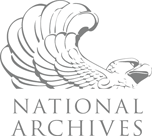 Web-sisällön esitys
Web-sisällön esitys
Recorded Speeches and Utterances by Eleanor Roosevelt, 1933-1962
The following is a list of recorded utterances by Eleanor Roosevelt that are housed within the Audio/Visual Collections at the FDR Library.
Most materials listed may be duplicated for reference purposes without restriction. Any rebroadcast of commercially produced radio and television programs requires the permission of the media networks. Commercially produced recordings may not be duplicated for rebroadcast or other commercial purposes without permission of the copyright holder.
This list includes the radio series produced by the Pan-American Coffee Bureau (September 28, 1941 through April 4, 1942) wherein Mrs. Roosevelt commented on affairs of the week and interviewed guests, and the 1950-1951 radio series, which followed the same format for 233 numbered programs and an additional 93 interviews. In this series, like the first, Mrs. Roosevelt is essentially the hostess and interviewer, rather than the interviewee.
Please Contact the Archives if you would like to order materials listed below.
 Web-sisällön esitys
Web-sisällön esitys
| Date | Description | Library ID |
|---|---|---|
| Date | Description | Library ID |
| 1933/10/24 | Radio address at a dinner in honor of founder Dr. M. Carrie Thomas of Bryn Mawr College given by the Affiliated School for Workers in New York City. (NBC). (Seven minutes). | 64-9 |
| 1935/05/31 | Radio Program "Ten Years from Now" sponsored by US Treasury. Topic: Family Budget. Discussion - Savings Bonds. Marine Barracks, and White House, Washington, D.C. (CBS). | RLxC-9 |
| 1935/12/03 | Dedication of completion of low income first houses at 3rd and 1st Avenues. NYC Housing Authority (Mayor LaGuardia), New York City. | 75-8:1 |
| 1937/04/06 | Radio address for the "No Foreign War Crusade", to further the cause of peace. White House, Washington DC. (NBC). | 75-8:2 |
| 1937/04/09 | 25th Anniversary Celebration of Girl Scouts of America. Eleanor Roosevelt, Honorary President of Girl Scouts of America. Address to the Girl Scouts: "Value of Young Women in Leadership Today". Biltmore Hotel, New York City. (NBC Radio). | 75-8:3 |
| 1937/06/02 | Radio discussion on "Promoting and Preserving Peace" with Jr. college student from GeorgeWashingtonUniversity. John Southmayd of Little Falls, Montana also on University Debating Team. White House, Washington, DC. (NBC). | 75-8:4 |
| 1937/06/09 | Formal and Official Entertainment at the White House and Informal and Unofficial Entertainment at the White House. Interviewer, Jeno (?) well known writer in Washington. White House, Washington DC. (NBC). | 75-8:5 |
| 1937/08/20 | Address to The National Convention of Young Democratic Clubs of America. Introduction by James Roosevelt. Cadle Tabernacle, Indianapolis, Indiana. (NBC). | 75-8:6 |
| 1937/09/25 | Fireside gathering of the FDR cross country tour and family reunion atYellowstoneNational Park. Ranger Jeffrey (?) describes the natural beauty and animal inhabitants of Yellowstone. (NBC). | 75-8:7 |
| 1937/12/16 | LET'S TALK IT OVER: Mistress of Ceremony Lisa Sergio, Topic - "Women in Public Office". Conducted by the Federation of Business and Professional Women of America, Washington DC. (NBC). Two Copies. | 75-8:8 |



